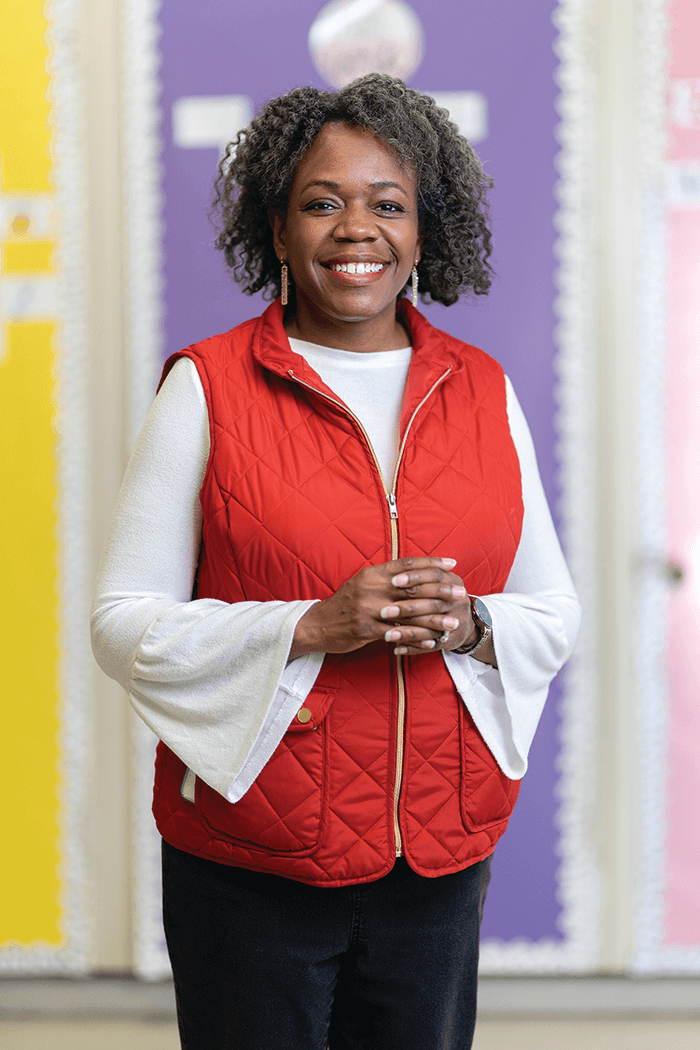Nicole Morales serves as the school counselor at Holt Elementary School in Tuscaloosa, Alabama. She taught in K-5 classrooms throughout the South for 20 years and then earned a master’s degree in school counseling. Morales shared her thoughts with LFJ about the urgency for intentional relationship building in the current climate of public education.
This interview has been edited for length and clarity.

With the ongoing pandemic and all that entails, what kinds of things do you notice as your school’s counselor? How are students doing?
Nothing takes the place of a human teaching another human being. Children returning from virtual learning had to be slowly transitioned back into, “What are the normal expectations for school? How do I interact with my peers? Is it OK for me to high-five people?” We’re seeing the ramifications of not having daily social interaction.
We see a lot of behavioral issues with younger kids. Some of them would’ve been 18 months old or right at 2 when COVID started, so many of them were never exposed to daycare, pre-K or Head Start. Where a child of 5 could handle rules, structure and consequences, you’re getting more of the mentality of 2-year-olds—having fits and that kind of thing. And when you’re trying to teach something, especially with younger children, you must be hands-on. If you aren’t, it’s just wasted time.
What are some ways educators can support students right now?
Just being there and listening. Educators at my school sit with their classes and talk before the day starts. They call it morning meeting. A lot of schools are implementing that. It has really helped. Students talk about the day or something that’s bothering them.
Being mindful of different situations students may be in is so important, even if you talk to them for only a minute. You can do what’s called “10 by 2.” Choose students who need special care and attention and talk to them daily for two minutes for 10 days straight. A lot of my colleagues do that and it works. Kids will learn more from you if they know you care.
We’ve been intentional about building relationships with one another. When you’re trying to build back school climate and culture after COVID, our focus is on the relationship aspect.
Why did you choose to become a school counselor, and what do you love about your work?
I knew that my time in the classroom had run out. It was time for something different. I feel like I can do more preventative measures as a school counselor. Do I miss my regular classroom? I do. I do miss the teaching aspect and just being with one group of students. However, I’ve been able to broaden that territory and reach a whole school. At the time—about three years ago—I saw that we needed caring counselors and we hardly had any African American counselors. There’ve been several more since I started. That’s a great thing.
The kids make you feel like a rock star. You walk up and down the hallway and hear, “Hey, Miss Morales!” My colleagues and administrators are great. I have a social worker who’s phenomenal. I wish she was here every day—she’s only here two and a half days a week—then we could really make some significant changes. I’m doing what I can and giving it my all. I’m in the right place with the right people.
What should people know about school counselors?
It’s difficult. It’s not for everybody, but it’s so important to have a person who can be the mediator between home and school, administrators and teachers. I know it sounds cliché, but it really is about relationships. You can take the toughest, most difficult parent and just give them a chance to be heard. If you make school a pleasant experience—make it transparent and build relationships with parents—it makes a huge difference. Climate and culture.
I don’t remember, when I was younger, having a school counselor, but I wish we had more. Some people say, “Oh, you just sit in your office and drink coffee.” Well, you didn’t see that suicide protocol I had to do for an hour and a half. You didn’t see that I’m trying to get somebody’s lights paid, keep their water on or trying to get them housing.
We need more counselors. We’re seeing so many emotional problems, especially with younger kids and even with some adults. I would encourage more funding for school counselors. Since we have had all these issues with the pandemic, we really had to go back to basics. Learning to de-escalate and calm situations. Thinking about how we talk to one another. Building relationships. With those basic things, we’ll see some changes.
Nicole Morales is the school counselor at Holt Elementary School in Tuscaloosa, Alabama.
Know an excellent administrator, librarian or counselor we should interview?